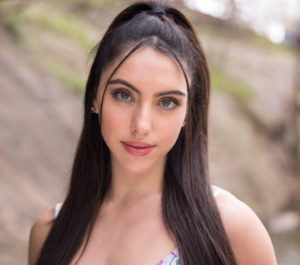By Melina Bezanis

For many years, I have grappled with a sense that dance, my life’s work, and utmost passion, exists within a sphere of privilege that is detached from the reality of the world. As dancers, we live in a space that promotes artistic freedom and exploration. This bubble provides room for thoughtful engagement and the ability for confident and empathetic beings to blossom. From class to rehearsal to performing on stage, I am overwhelmed with gratitude for the opportunities I have been given. And at the same time, recognize that it is a privilege to have a safe space where one can become the most authentic version of themselves.
The privilege of safety, never mind artistic freedom, stands in especially stark contrast to the mass atrocities from the past two weeks. I admit, it feels futile on a day like this to point my toes and leap through the air while people are blatantly suffering at home and abroad. More than ever, I am confronted with a deep disconnect between my artistic passion for dance and my desire for social justice.
Given this philosophical dilemma, I have taken time to question the connection between the arts and social justice to rediscover the power of dance, particularly through the work of Alison Cook-Beatty, an incredibly brilliant and brave choreographer with whom I’ve had the honor of working with.
Alison’s piece, GEN HOPE, was created as a poignant response to gun violence in America and has since grown to illustrate the persistent and powerful human spirit nestled in all of us. The work can be summarized by the mantra “still we rise,” which we dancers repeat as we continuously climb to standing after forcefully getting knocked down.
By participating in Alison Cook-Beatty’s work, GEN HOPE, I have been brought back to the roots of why I am an artist and just how much dance connects me to the larger world.
Sitting on the floor with the company, we shared a heartfelt conversation, in which we reminded ourselves that dance has the capacity to catalyze conversation, shed light upon unspoken narratives, challenge the status quo, uplift communities, and simply create a space to feel. Dance allows us to embody the things we cannot find words to say. It is a universal language that empowers us to transform, illuminate, educate, and inspire.
Moving forward, day by day, the arts will be essential for us to heal. We must experience, interpret, and express in order to propel society toward a more just future. It takes bravery to see the world for its potential, and persistence to actualize that dream.
Although things seem bleak in the face of tragedy, as artists, we have the ability and responsibility to create meaningful works that push the imagined boundaries of our human form and potential. It makes me proud to exist in a space that is committed to progress and proud as a dancer to participate in works like Alison Cook-Beatty’s GEN HOPE.

